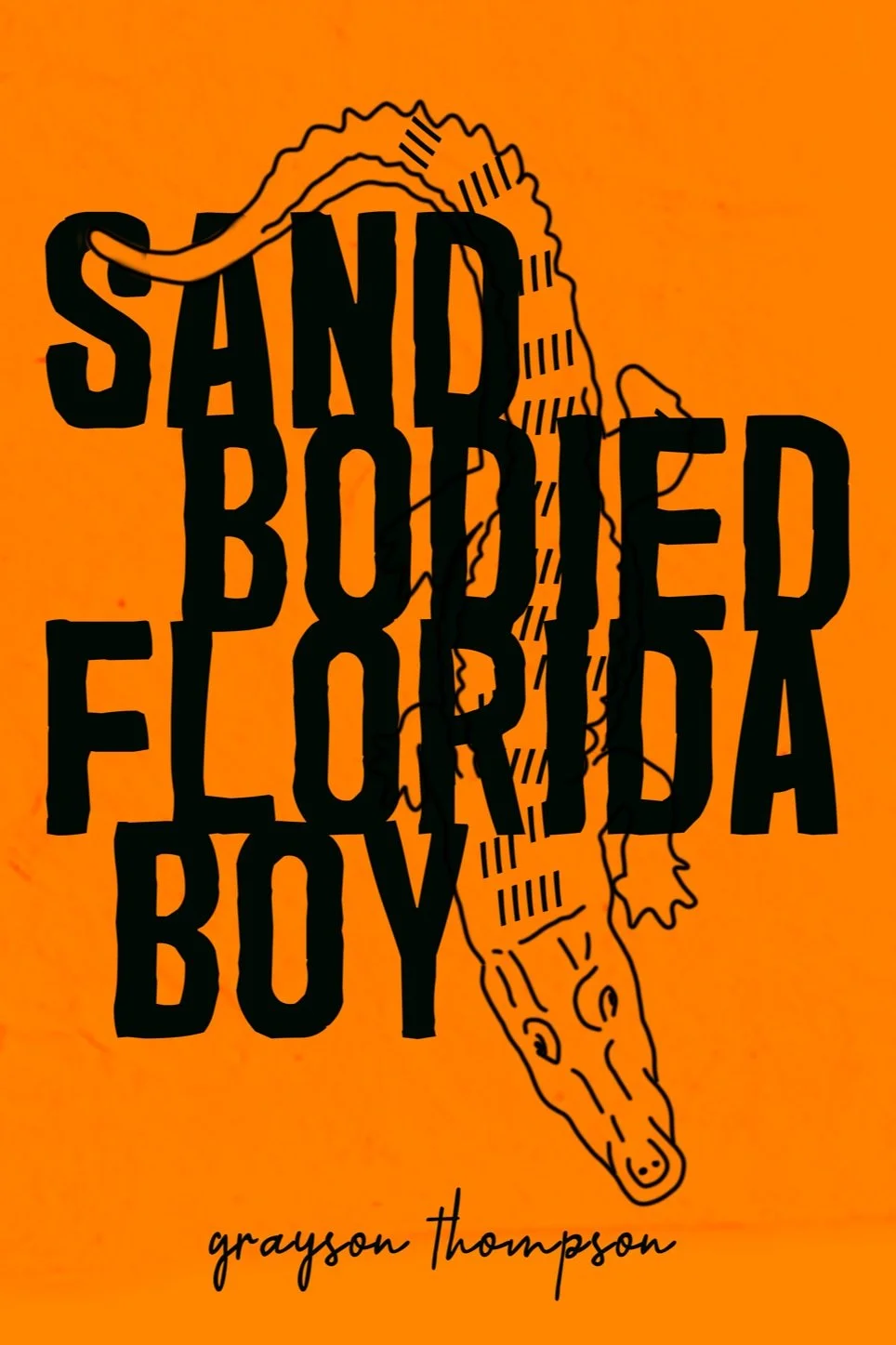
It was either a phone call or a message, or a fight so bad your tongue set trees on fire. It was around a table, at a bar, in an art gallery, a support group, over a late night with your favorite person, the last night you saw them, on a bike ride, in a breakup, at a hospital, when you were in love. It happened when you least expected it, maybe you weren’t ready to hear it, maybe you fought it with the worst parts of yourself. Whenever it came or whatever it was, what a thing to know it arrived.
“The fact that this extraordinary book is Grayson Thompson’s debut is not the most remarkable thing about Sand Bodied Florida Boy. What we have here is an electrifying collection of poems fearless in their psychological profundity, poems that celebrate life while critiquing its inequities. And, isn’t it the task of the poet to articulate not only what we are but what we are capable of becoming? Here, the pain is very real. But so is the resilience. He writes, “I know what loving myself is now / it’s building a poem / heart break by heart break.” Thompson’s moment is now. And we’re beyond fortunate to witness it.”
Erica Dawson, author of When Rap Spoke Straight to God
Grayson’s Sand Bodied Florida Boy is a love song to the first moment you felt believed in, when hope wasn’t a question, but an answer in every breath you chose to take. It is a collection of poems about the flood breaking through the sandbags, and the person waving a flag on the other side, a lighthouse beacon of becoming, screaming your name. Hollering you home. That person is you. It’s me. It’s any awful thing we never meant to say, or wanted to take back, or meant.
Sand Bodied, as he likes to call it, is the hot air of an “i love you” ballooning the sky pink. There is a job board, somewhere, bigger than the beginning, with a list of vacancies for living. Each day, in big font, our lives come out messy, the complicated track record of people committed to painting the story of how they got here. He is so glad you came. The job description, there’s only one– is don’t hold it all in.
This collection explores the reimagination of his boyhood, something he did not socially or biologically receive as a Black trans person, and how he grew to make sense of who he would become. It speaks to being an immigrant possibility dream for his Jamaican mother, who has never run from a hurricane but wonders every year about the sandbags, and how he began creating grace out of his name. Accepting that, sometimes, grace rhymes with grief and grief is a doorway word to the flood.
